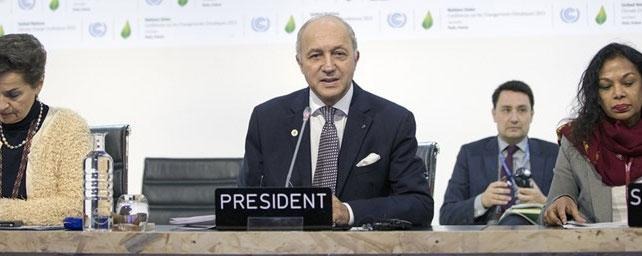Climate Change Conference COP21 Is Deciding Our Planet's Future
The United Nations are meeting in Paris this month to decide the fate of our shared planet. Climate change is the subject, and how we'll mitigate damage is the talk that surrounds it. A total of 195 nations gathered this week to chop through planned global agreements to fight global warming. The key reason talks aren't simpler: cash. These nations have to decide who will foot the bill for assisting in mitigation for developing countries, and the U.N. as a whole isn't exactly sure who should do it.
"There will be another draft today where more square brackets will be removed but, most importantly, we need more consultations with our colleagues, said representative Gao Feng from China via Reuters. "On Friday or Saturday we may get there."
You can read a draft of the accord in a version 1 of 9 through the UNFCCC website – there a PDF file shows all pages of this earlier version of the proposal, entitled "COP 21 agenda item 4 Durban Platform for Enhanced Action (decision 1/CP.17) Adoption of a protocol, another legal instrument, or an agreed outcome with legal force under the Convention applicable to all Parties."
A negotiation for limits on greenhouse gas emissions is what this accord is aiming for. An agreement on which countries need to do what.
Below you'll see a video presented by the United Nations Framework Convention on Climate Change official called "Women for Climate Action at COP21."
A total of 186 nations have presented national plans that'll stay in effect until 2025 or 2030. Well over 100 (developing) nations have asked for a "long-term goal" to limit increase in the rise in the earth's surface temperature to 1.5 degrees Celsius (2.7 Fahrenheit) over pre-industrial levels.
At this time, emissions cuts aren't going to be anywhere near that limit.
European Climate and Energy Commissioner Miguel Arias Canete suggested that national plans of action will need to be (should be) reviewed in cycles of five years.
"Without the five-year cycles, the agreement is meaningless," said Canete. National plans need to be reviewed every five years, he continued, "so that when the treaty enters into force in 2021, we are able to raise the level of ambition."

This U.N. conference is chaired by French Foreign Minister Laurent Fabius, who this week suggested that they'd planned to release a penultimate draft of the agreements on Thursday evening. Fabius said that the accord must be reached by Friday night.
Past U.N. meetings of this sort have run into the weekend, effectively dismantling agreements and loosening bonds in the less-than-standard times for meeting.

